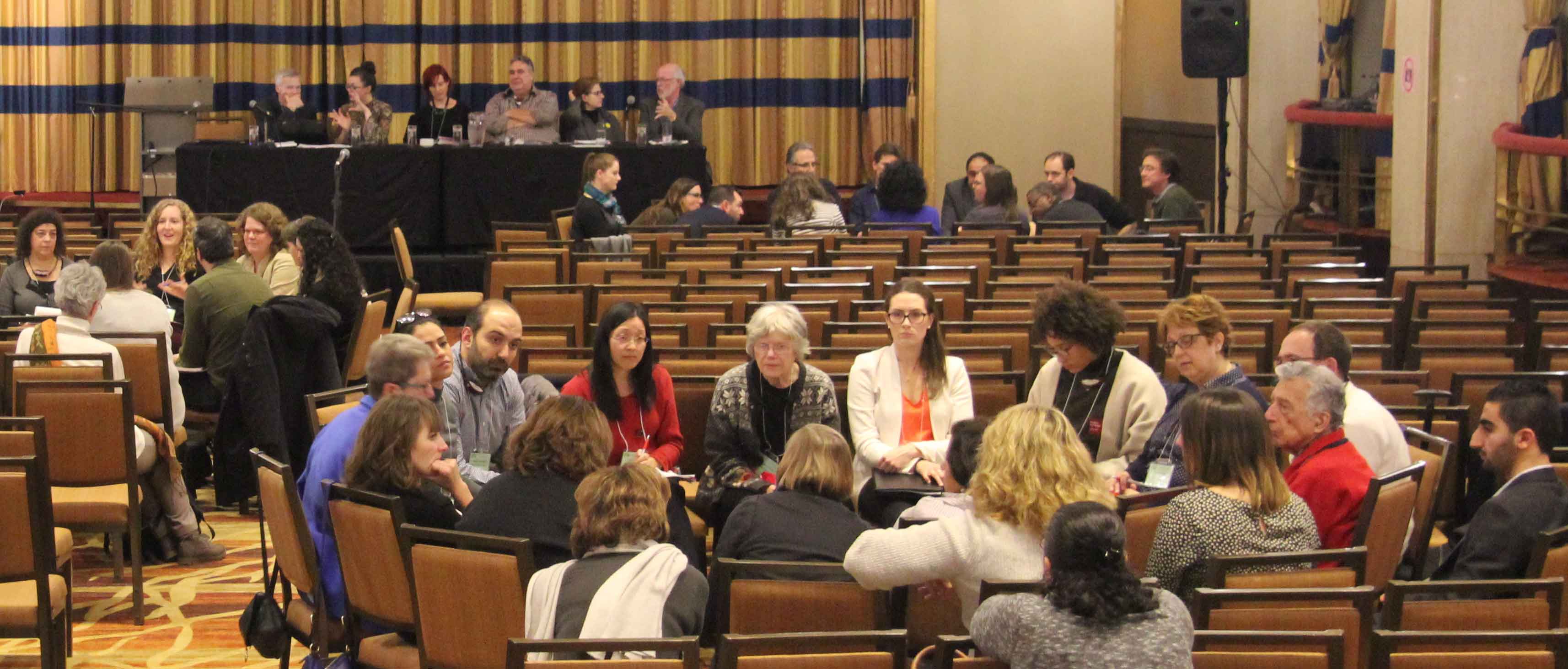MacEwan University
10700 104 Ave NW
Edmonton AB T5J 4S2
Canada
Canadian Council for Refugees Spring Consultation
1-3 June 2017, Edmonton
MacEwan University, City Centre campus, 10700 104 Ave NW
Nurturing Diversity and Inclusion: Reflecting on the past to inspire the future

Join us to explore questions affecting refugee protection and newcomer settlement at the Canadian Council for Refugees Spring Consultation. All are welcome to participate!
With views from all Canadian provinces and with participants in fields as diverse as healthcare and the law, the conference offers opportunities for professional development, networking and strategy.
Featured speakers:
Consultation participants will hear from Lewis Cardinal, indigenous community activist, as keynote speaker.
Fraser Valentine, Director General, Refugee Affairs and Corinne Prince St-Amand, Director General, Integration, Immigration, Refugees and Citizenship Canada will participate in a Dialogue with government representatives.
Registration and program:
If you are with a CCR member organization, register here.
If you are not with a CCR member organization, register here.
Register before 12 May 2017 to take advantage of reduced fees.
Click here for the provisional Consultation program. Workshop descriptions are available here.
Save the date: Regional Forum on Migrant Workers, 4 June 2017 in Edmonton
Join the CCR and Migrante Alberta for a skill-sharing and strategy session for migrant workers and people advocating for the rights of migrant workers. Click here for more details and to register for the Regional Forum.
There’s no better time to become a CCR member...
If your group or organization is not yet a member of the CCR, you may be missing out on member perks like Consultation registration discounts, free webinars and online resources for CCR members only. Coming to the CCR Consultation in Edmonton? There is no better time to apply for membership as a Member (for groups and organizations) or as an Associate Member (for unaffiliated individuals).
Submit a membership application and your Consultation registration by 12 May 2017 to receive member registration rates and membership for 2017. See ccrweb.ca/en/join for more details.

Here’s what some people like about Consultations:
‘‘My clients face these issues and it’s important for me to hear from other workers about possible solutions.’’
‘‘It takes extra effort to keep updated when you do it on your own so being a part of the CCR and the energy of people who care was absolutely wonderful, refreshing, and a good reminder of what matters.’’
‘‘A lot of the consultation was useful to me and my work. I feel that I will be able to bring a lot of what I learned back to my team.’’
‘‘It was nice hearing questions, comments and concerns addressed by both people who work in the refugee sector and from refugees themselves.’’
‘‘I appreciated the open environment and the speakers’ abilities to navigate a conversation so that everyone felt heard.’’
About CCR Consultations
CCR Consultations address issues affecting refugees and other vulnerable groups of migrants, and newcomer settlement. The 300 participants from across Canada include refugees, immigrants, representatives of NGOs, government, UNHCR, academics, community workers, youth advocates and international guests.
People who work with newcomers and those with a personal interest in refugees and immigrants are warmly invited, especially youth.
The consultation is an excellent opportunity to:
- Meet, learn from and network with experts in the field
- Gain professional training and strategize on a wide range of topics
- Exchange information and prepare resolutions and action plans on a broad range of refugee and newcomer issues
- Contribute to the CCR working groups’ ongoing dialogue on policy and legislation
CCR consultations are designed to move from issues to action. The Working Group meetings frame the discussions, introducing the issues at the beginning, and then, after the workshops, strategizing on next steps. At the Concluding Plenary, we adopt any new policy positions through resolutions and review key action items.
